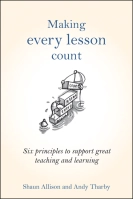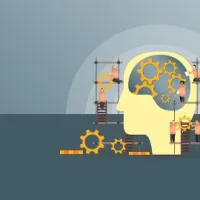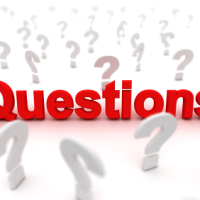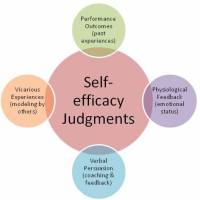The 15 minute forum today was led by Jo Grimwood – who is currently Head of Media Studies, but has just been appointed as Deputy Leader in English. The starting point for the discussion was the fact that teachers rarely leave students more than a second to respond to a question once posed. This doesn’t really give them time to formulate much of a verbal response! So it’s something that we all as teachers need to consider.
It helps students formulate their ideas into clear thought.
Accurate use of speech, helps improve accuracy in written work, especially grammar.
Finally, and very importantly, confident speakers are confident people – so it builds confidence.
Some simple strategies that can be tried out to develop oracy skills:
Taboo
Students have to guess a word being described to them by their peers – however, there are certain words that can’t be used in the description. So for example the word to guess could be ROMEO, but in getting the student to guess the word, students can’t use the words JULIET, MONTAGUE & BANISHED.
This can be be easily applied to a wide of subjects and be differentiated by increasing the number of ‘taboo’ words.
Debates
A great way to get students thinking about issues and then having to present/ discuss their case orally. Again, this can be applied to a range of different subjects:
- Should cloning be allowed in humans?
- Was Stalin more evil than Hitler?
- Exotic fruits are worth the air miles?
- The internet should be heavily censored?
- Drugs in sport should be legalised to make it a level playing field?
One example of how a debate was set up in a lesson was to pose the question, and then ask students to go different sides of the room if they agreed or disagreed with the motion. each side then prepared their case and presented it. After each side had presented their case, students then had the option of changing sides – giving reasons if they did. This could be repeated for a couple of rounds.
There are a number of websites that have some good, stock debate phrases that can be used to support students. An example is here
Yes, no, because……
A simple, but highly effective strategy to get students thinking about extending their verbal responses to questions.
So, firstly pose a question. For example:
- David Moyes will be a better manager for Manchester United than Jose Mourinho.
- Hitler would have defeated Britain if he hadn’t started attacking Russia.
- Breathing and respiration are the same thing.
- Mr Birling is to blame for Eva Smith’s death
Then a very simple rule is introduced. Instead of being allowed to just answer ‘yes’ or ‘no’, they are only allowed to answer ‘yes because…..’ or ‘no because…..’
This makes a huge difference to the quality of response you will get back.
Just a minute
Students talk for one minute about a chosen topic, without syaing um, er, repeating themselves or pausing. For example, topics could be:
- The importance of cool down after exercise
- Catholic views on abortion – right or wrong?
- How to solve quadratic equations
- Factors that contribute to poverty.
- How to draw the perfect self portrait.
Group Revision Games
- 3 students – A, B and C.
- A has a piece of paper with a list of information about a topic that has been covered.
- B must tell C everything they know about that topic in 1-2 minutes. A will tick off the information covered by B on the sheet.
- Then B and C swap but C must repeat everything that B has said first and then add anything that hasn’t been covered to it.
- The group with the most number of points ticked off, wins!
Make video clips
Getting students to film themselves speaking is really useful, as it allows them to self-assess their speech and presentation skills – they also enjoy doing it. They could be filmed doing:
- Presentations
- ‘How to….’ guides
- Role plays
- News bulletins.
Secret post-it note
- Stick a post-it underneath 1-3 chairs before the lesson with a question or instruction on it.
- At the right point in the lesson, ask students to check underneath their chairs.
- The students with the post-it note has to answer the question verbally and pose a related question to the class.
What can all teachers do, all of the time, to improve oracy?
- Make students speak in full sentences and encourage them to use standard English (not slang).
- Pick them up on grammatical errors (would have, NOT would of), fillers (er, um etc.) and unnecessary repetition (like, OK).
- Make a point of expecting clarity e.g. hand away from the mouth!
- Model competent speech and show them the difference between clarity and slang – (nah, that’s wet init).
- Praise speech specifically, not just knowledge and understanding – We often forget about this!
The ‘Developing Dialogue Toolkit’ can also be downloaded – it contains a large number of oracy based teaching ideas – developing dialogue toolkit
 Also, why not have a ‘NO PENS DAY’ at your school – where all lessons have to be taught throughout the day, in all subjects without any writing or drawing?
Also, why not have a ‘NO PENS DAY’ at your school – where all lessons have to be taught throughout the day, in all subjects without any writing or drawing?












Excellent work Jo
Keep the ideas coming
Sue
Pingback: SRS Teaching and Learning Hubs 2013-2014 | From the Sandpit....
Pingback: 2013 – A year of blogging…. | Class Teaching
Pingback: ‘Quick wins’ #9 – Developing oracy: Getting students to respond in full sentences. | Never Stop Learning
An excellent site- I will referring colleagues to these pages!
Good post. I love this
Pingback: Talk like… resources | Chris Moyse
This is very educative. i love it.